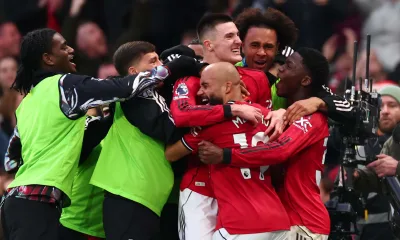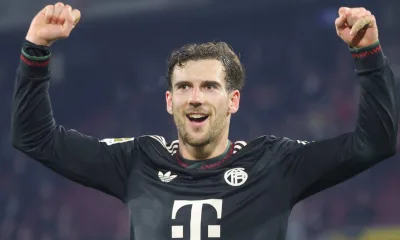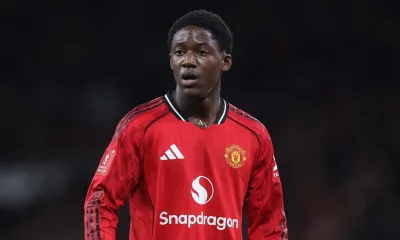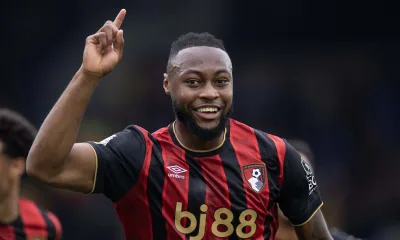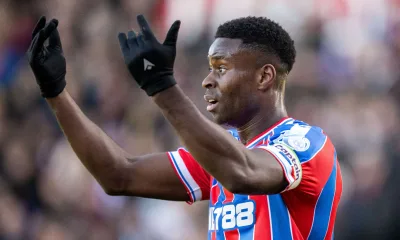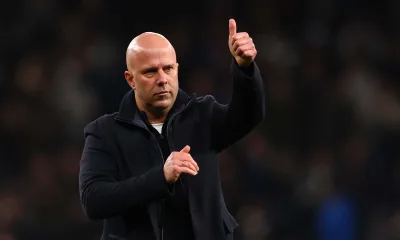Manchester United
Mazraoui accepts responsibility after Ten Hag exit
Noussair Mazraoui says he “feels responsible” for Erik ten Hag’s sacking after poor United form. Yet
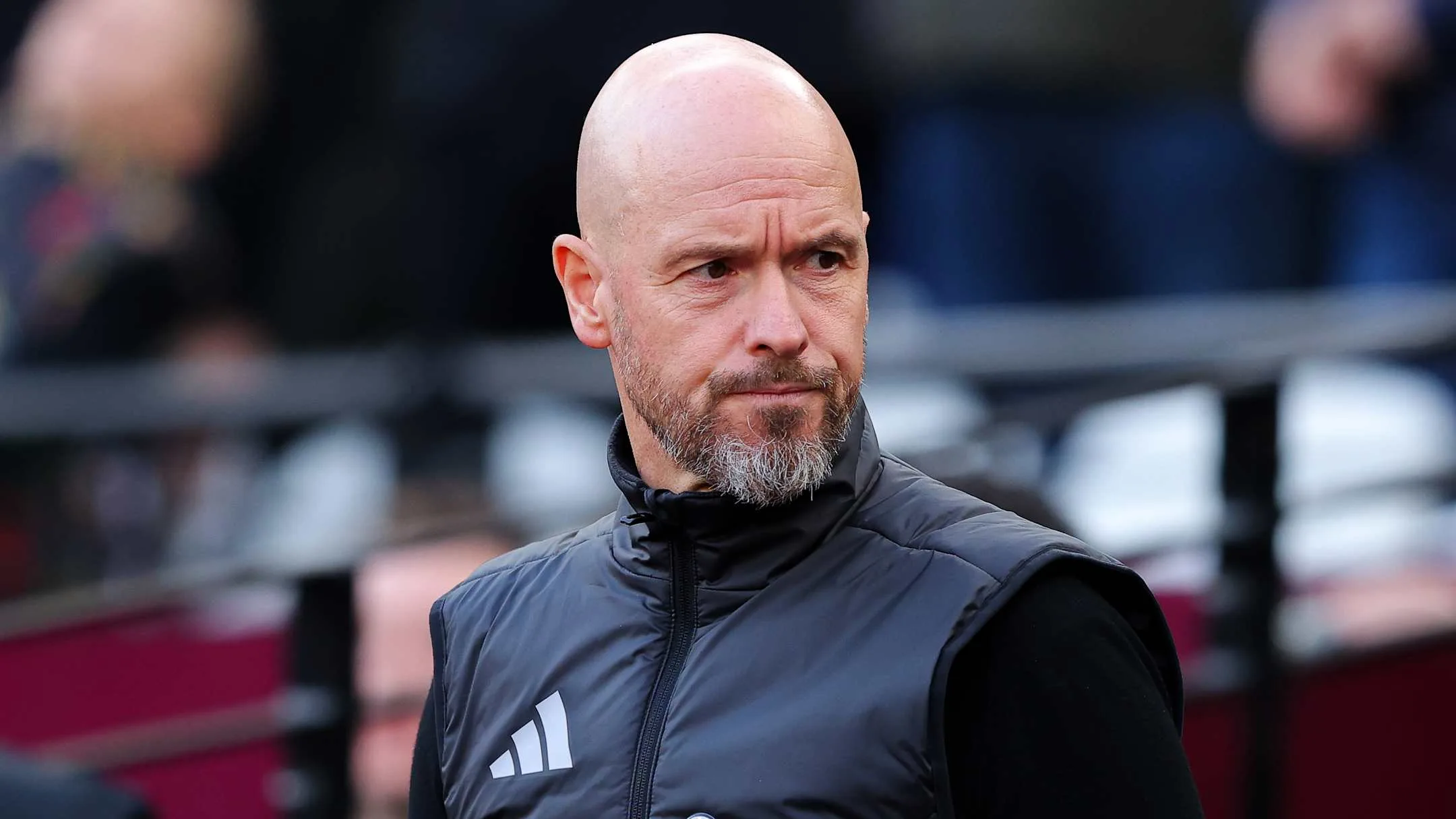
Noussair Mazraoui has publicly acknowledged a sense of responsibility for Erik ten Hag’s dismissal after a difficult spell at Manchester United. The defender said he “feels responsible” for Erik ten Hag’s dismissal last season after failing to “perform.”
Ten Hag was the manager who gave Mazraoui his senior debut in 2018. That debut was the first of 137 appearances the player made for the Amsterdam outfit before leaving in the same 2022 summer as Ten Hag. After two injury-riddled seasons at Bayern, Mazraoui was reunited with his former coach at Old Trafford.
During a candid interview with The National, Mazraoui admitted that it was “difficult” for him after Ten Hag left. “He was also a reason I came to the club,” the 27-year-old sighed. “You come to a club because for the club itself, but also for the manager.”
Mazraoui was frank about the emotional side of the situation and the link he draws between player performance and managerial security. “I worked some good years with him at Ajax, so that’s also one of the reasons I came here. And then if he’s gone after two or three months, that’s never nice, because you feel also responsible for that. Because if the players perform, the manager stays, it’s that simple.”
On the field, Mazraoui made 13 appearances for United under Ten Hag and the team recorded just four wins in that period. One of those victories came in the Carabao Cup against third-tier Barnsley. The decisive result that preceded Ten Hag’s exit arrived in a Premier League fixture against West Ham United. After a strong start the team fell behind in the 74th minute, Casemiro hauled the visitors level and Matthijs de Ligt then conceded a stoppage-time penalty. The Premier League later admitted it was a refereeing error to award the spot kick, which Jarrod Bowen converted, a goal that ultimately sealed Ten Hag’s fate.
Manchester United
Carrick: Mainoo Freed from Amorim’s System and Seizing Midfield Opportunity
Carrick says Mainoo was pigeonholed under Amorim and now has fresh opportunities in midfield Update
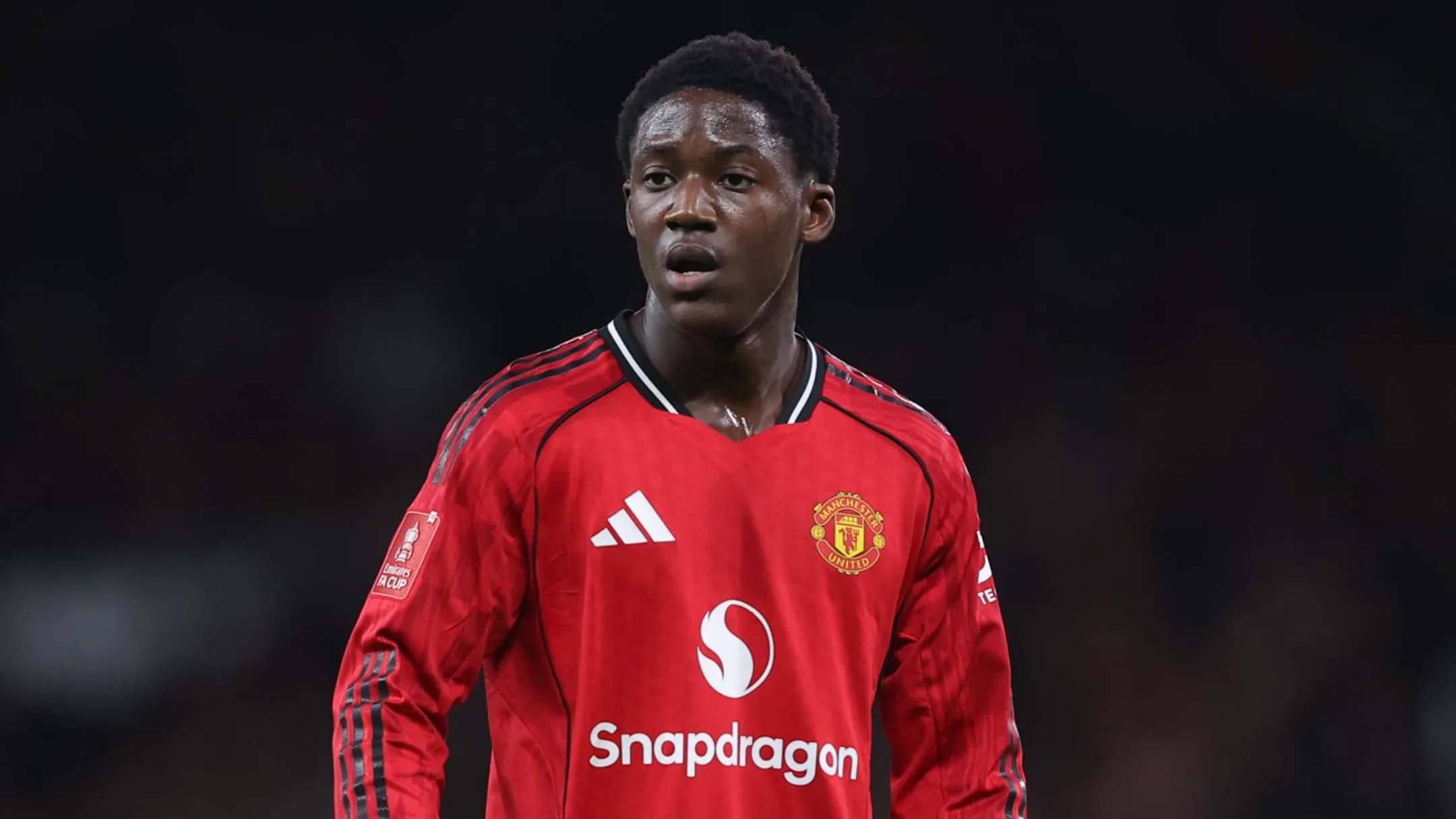
Michael Carrick has publicly defended Kobbie Mainoo’s versatility and warned against simple labels after the midfielder’s limited role under Ruben Amorim. Carrick says the academy graduate had been unfairly narrowed into a single function, and the interim manager has adjusted the team shape to give Mainoo a fuller role.
“I like the way Kobbie takes the ball,” Carrick told Sky Sports . “I think that’s a big part of being a footballer, and being a top player is being able to cope with the environment.
“He’s come in at such a young age and played some big games in the Euros for England and for Manchester United and playing a big part in those games. So just being able to cope, first off, is a huge thing and he’s proved he can cope.
“He takes the ball, he drifts, he can play, he can play a little bit deeper at times, he can play a little bit higher up depending on who he’s playing with.
“I think sometimes we can pigeonhole players in certain things quite quickly and it’s not always the case. Sometimes you see things in a player and you tweak it a little bit, a bit like Patrick [Dorgu] playing a little bit higher. All of a sudden, things open up.
“Kobbie can play different roles within that, but definitely with Casemiro in the middle of the last couple of games we’ve had a really good pairing. They’ve been a big part of controlling the team.”
Amorim faced plenty of criticism during his time as United manager, primarily relating to his commitment to a 3-4-2-1 formation. Behind that, his use of Mainoo was the top concern among fans. Mainoo was limited by the reduced number of midfield places in that system and by Amorim’s view of him as emergency cover for Bruno Fernandes, who was given a deeper role.
Statistical record (all competitions): appearances 40; starts 16; goals 2; assists 2; total minutes 1,747; minutes per appearance 43.7.
Since Carrick replaced Amorim, Fernandes has been returned to a more attacking role in a 4-2-3-1 and a midfield pivot place has opened. Mainoo has taken that chance, earning two starts under Carrick and beginning to demonstrate the all-round role the manager described. The manager’s tactical adjustment has given Mainoo a clearer pathway to regular midfield responsibility.
Gameweek 24
Gameweek 24: Premier League predictions and short-form analysis
Predictions and brief analysis for Premier League Gameweek 24, focusing on key fixtures. Weekend 24.
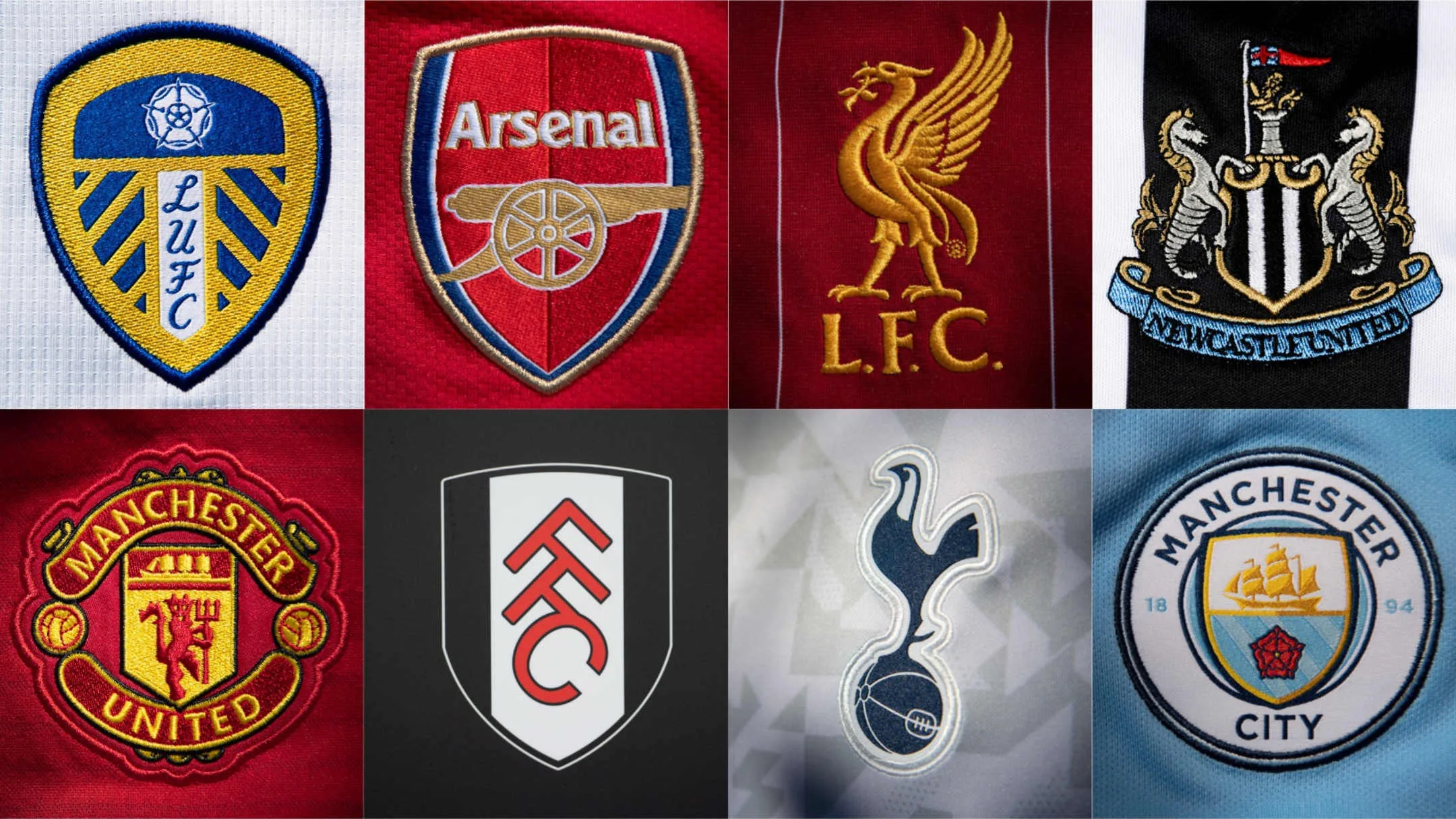
After midweek’s conclusion of the Champions League and Europa League group stages, attention turns back to the Premier League for Gameweek 24. Manchester United arrive on Sunday buoyed by recent results under Michael Carrick, while rivals face a potentially decisive trip to north London for the title race.
Brighton and Everton meet in a tight mid-table duel where three points separate the clubs. Brighton’s reliable home record and Everton’s strong away form point to a close game. A draw looks the likeliest outcome: Brighton 1–1 Everton.
Arsenal travel to Elland Road under fresh scrutiny after their defeat to Man Utd. Mikel Arteta made sweeping changes in midweek and the side need points to rebuild momentum. Leeds’ strong run makes this a difficult test and a narrow win for the visitors is predicted: Leeds 1–2 Arsenal.
Wolves versus Bournemouth in the Midlands carries little immediate consequence for the table. Both defences have been vulnerable recently and an open, high-scoring game is probable: Wolves 3–3 Bournemouth.
Chelsea have enjoyed a marked improvement under Liam Rosenior, including a key midweek win in Naples. With Cole Palmer returning, Chelsea should have the depth to cope with a congested schedule and are favoured: Chelsea 3–1 West Ham.
Liverpool host Newcastle in an evening fixture that promises intensity despite midweek travel. Liverpool remain without a league victory in five games and Arne Slot’s side have defensive issues. Alexander Isak remains absent through injury. Expect a draw: Liverpool 2–2 Newcastle.
Aston Villa return to Villa Park while managing a mounting injury list in midfield and attack. They should just edge a competitive Brentford: Aston Villa 2–1 Brentford.
Man Utd will look to extend their run at Old Trafford against Fulham following consecutive big wins. United’s defensive reshuffle has steadied them and they are predicted to prevail: Man Utd 3–1 Fulham.
Palace continue a winless run of 11 matches with Oliver Glasner seeking to arrest the slide. Nottingham Forest arrive in better form and should take a narrow home victory: Nottingham Forest 1–0 Crystal Palace.
The weekend closes with Tottenham hosting Man City. City have regained momentum and, despite Tottenham’s ability to frustrate top sides, a Man City win is forecast: Tottenham 0–2 Man City.
Monday’s fixture sees Sunderland expected to overcome Burnley at the Stadium of Light: Sunderland 2–0 Burnley.
Fulham
Carrick urges caution as United prepare for Fulham test
Carrick warned United not to underestimate Fulham, insisting pragmatism can follow derby wins. Today
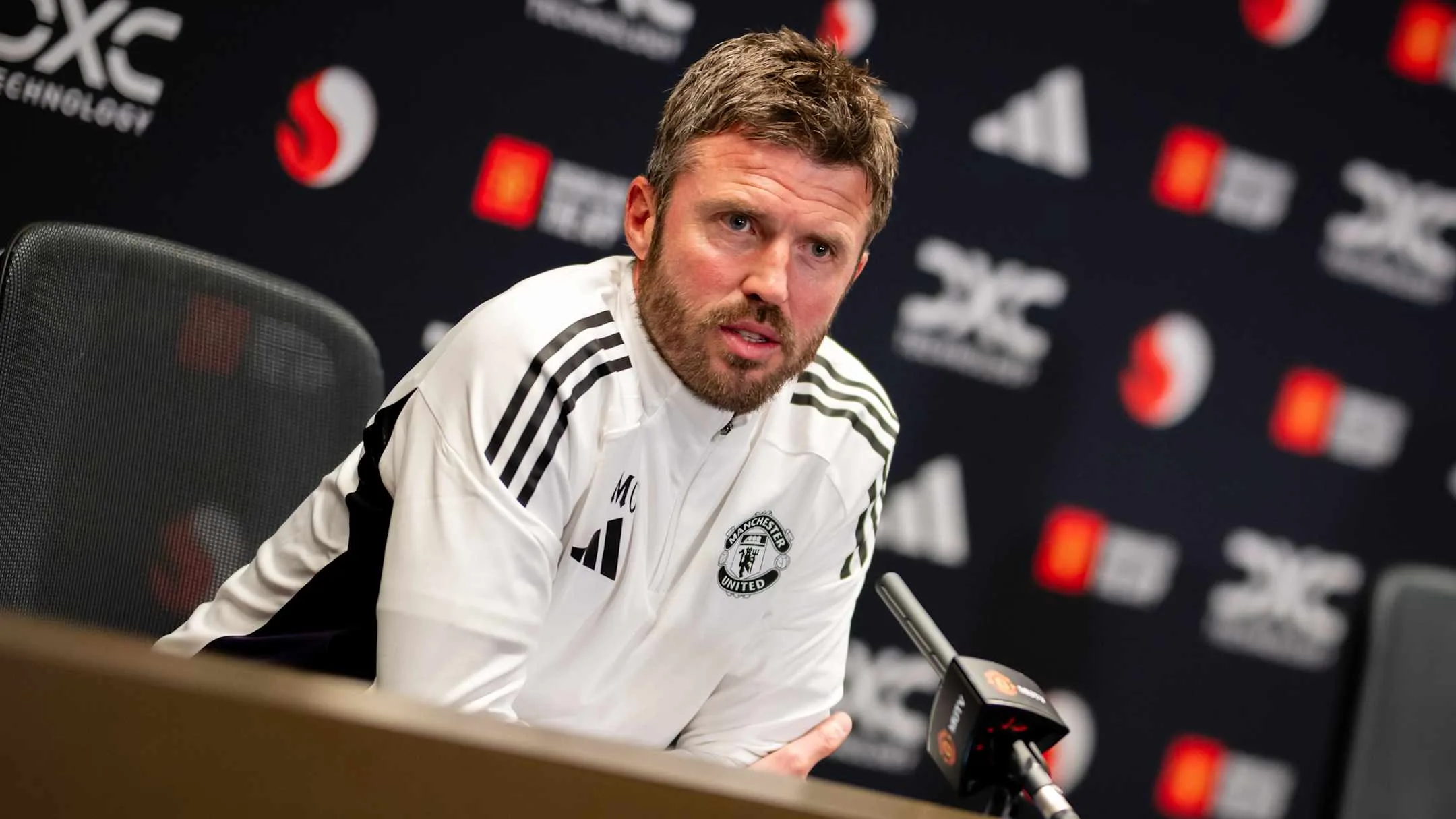
Michael Carrick insisted Manchester United must not take Fulham lightly, warning it would be “bang out of order” to do so while accepting his side may need to repeat the pragmatic gameplan that produced recent derby results.
United arrive at the match as clear favourites but Carrick was keen to temper expectation. “So it might be a case [that] it’s the same flow of the game as what we’ve had the last two weeks,” the reliably unflappable head coach shrugged. “No shame in that. We’ll deal with the game, what’s in front of us, and do whatever it takes for us to be able to come out on top.”
That approach was on show in the derby win over Manchester City, a victory that was only United’s second at Old Trafford since Halloween and one built on a surgical counter-attack through the middle. United recorded just 32% possession in that game, the fourth-smallest share of the ball recorded by the club in a home game over the past 20 years.
Fulham have proved difficult opponents for the division’s bigger teams. Under Silva they took four points from back-to-back fixtures against Liverpool and Chelsea in January and pushed Arsenal and, especially, Manchester City close in defeats earlier this year. Silva’s tactical tweaks were decisive in the 1–1 draw in August, when he explained: “We knew how they defend and we know they like to squeeze from the back five,” he revealed post-game. “And if you don’t give bodies for them to squeeze from the back five you can create superiority in the middle. We know they play with two in the middle, we tried to overload with our three plus Alex [Iwobi]. It was as simple as that.”
Carrick has reverted to a 4-2-3-1, bolstering the centre with Kobbie Mainoo alongside Casemiro, who both sweep up behind Bruno Fernandes. Fernandes’ return to the No. 10 role has been significant; he assisted goals against City and Arsenal. Silva’s side will look to exploit the space between the lines, with Bryan Mbeumo and Fernandes known to swap positions.
The squad’s mood has shifted under Carrick. Lisandro Martínez captured that change: “For me, when you touch my heart, I will give everything for you, and he touched it already and you can see that on the pitch we give everything,” and “You need people who understand your quality, and I think [Carrick] is doing that,” Martínez added. “He’s getting the best out of everybody, not just the players, but the staff. The standard, structure, and demands, are really important.”
Carrick has been emphatic about the emotional side of the job. “You’ve got to play with feeling. You got to play with emotion. You got to play with excitement,” he told assembled media on Friday. The manager will also be mindful of the early praise surrounding Ruben Amorim, who “hadn’t even taken charge of his first Manchester United game by the time players were already queuing up to laud his “top training sessions.””


